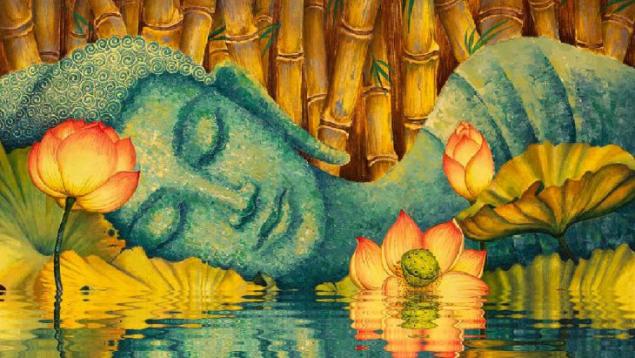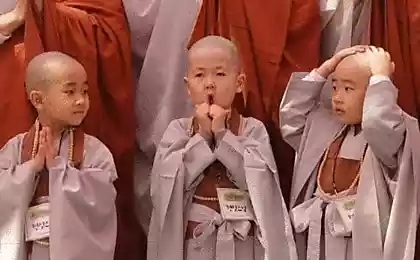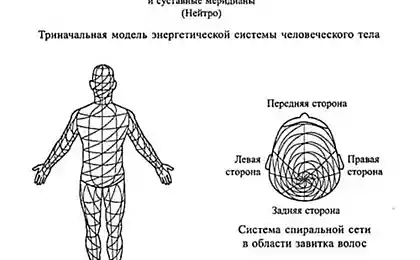636
The eight lessons of the Buddha, which are necessary for your soul right now
The teachings from the great spiritual mentor, which needs no special introduction. Translated as "Buddha" means "awakened" or "enlightened". In his teaching there is nothing that would contradict the principles of domestic harmony any other course, religious or philosophical. These lessons are universal and eternal, and to know them is interesting for the mind and good for the soul.

The website encourages readers to plunge into the world of Buddhist philosophy.
1. Start small — this is normal. A jug fills drop by drop. Every master was once an Amateur. If you are consistent and patient, you will succeed. No one can succeed in one night: success comes to those who are willing to start small and work hard until the jug is full.
2. Thoughts are material. Our consciousness is everything. If a man speaks or acts with an evil thought, pain pursues him. If a man speaks or acts with a pure intentions, followed by happiness. To live correctly, you need to fill in the brain "right" thoughts. Right thinking will give everything you want; wrong thinking — an evil which in the end will destroy you.
3. To forgive. To restrain anger in itself is like grasping a hot coal with the intent of throwing it at someone else, but it will burn you. When you release those imprisoned in the prison of unforgiveness, you free from this prison themselves. You can't suppress, not suppressing and yourself too. Learn to forgive. Learn to forgive quickly.
4. Your actions have value. To develop, you must act; to develop rapidly, we must act every day. The proverb says: "God gives every bird a worm, but does not throw it into the nest. The Buddha said, "I do not believe in a fate that falls on men as they are, but I do believe in a fate that falls on them unless they do nothing".
5. Try to understand it. We have ceased to fight for the truth, we began to fight only for himself. First, try to understand, and only then try to understand you. You should apply all your powers to understand the point of view of another person. Listen to others, understand their point of view and you will find peace. More focus on how to be happy than to be right.
6. Defeat yourself. It is better to conquer yourself than to win a thousand battles. Such a victory will not be able to take neither angels nor demons, neither heaven nor hell. To win yourself, you need to control your thoughts. They should not rage like waves of the sea. You may be thinking, "I can't control my thoughts. The thought comes when she pleases. To which I reply: you cannot forbid a bird to fly over you, but surely you can keep her nest you on the head."
7. Live in harmony. Harmony comes from within. Do not look outside of what can only be in your heart. The truth is that harmony can only be found within yourself. Harmony is not a new work, not new car or a new marriage; harmony is peace, and it starts with you.
8. Be thankful. Let us stand and thank for the fact that if we did not study much, at least, have not spent a lot of time, and if lost time, then at least not sick, and if sick, then at least not dead. There is always something for which we should thank. Don't be so pessimistic that for a minute, even in the middle of an argument, you are able to recognize at least ten things for which we should be grateful. Not all were able to Wake up this morning; yesterday some fell asleep the last time. There is always something for which we should thank.
12 tenets of reminders from the Buddha for a happy life: the biggest enemy in life is himself. The biggest stupidity in a person's life is a lie. The biggest sorrow in human life is jealousy. The biggest mistake in human life is to lose himself. The biggest fault in man's life — ingratitude. The greatest loss in life — loss of hope. The biggest asset in life is health and mind. The greatest gift in life — generosity. The biggest flaw in a person's life — a misunderstanding. Greatest consolation in life — good deeds. The most regrettable in human life — impairing their dignity. The most admirable of human life — to rise after falling. Short and wise advice from the Buddha: One of the most useful life skills — is the ability to quickly forget all the bad: not to dwell on troubles, not to live grievances, not to revel in irritation, not to conceal malice. It is not necessary to pull different stuff in his soul.
via fit4brain.com/1099

The website encourages readers to plunge into the world of Buddhist philosophy.
1. Start small — this is normal. A jug fills drop by drop. Every master was once an Amateur. If you are consistent and patient, you will succeed. No one can succeed in one night: success comes to those who are willing to start small and work hard until the jug is full.
2. Thoughts are material. Our consciousness is everything. If a man speaks or acts with an evil thought, pain pursues him. If a man speaks or acts with a pure intentions, followed by happiness. To live correctly, you need to fill in the brain "right" thoughts. Right thinking will give everything you want; wrong thinking — an evil which in the end will destroy you.
3. To forgive. To restrain anger in itself is like grasping a hot coal with the intent of throwing it at someone else, but it will burn you. When you release those imprisoned in the prison of unforgiveness, you free from this prison themselves. You can't suppress, not suppressing and yourself too. Learn to forgive. Learn to forgive quickly.
4. Your actions have value. To develop, you must act; to develop rapidly, we must act every day. The proverb says: "God gives every bird a worm, but does not throw it into the nest. The Buddha said, "I do not believe in a fate that falls on men as they are, but I do believe in a fate that falls on them unless they do nothing".
5. Try to understand it. We have ceased to fight for the truth, we began to fight only for himself. First, try to understand, and only then try to understand you. You should apply all your powers to understand the point of view of another person. Listen to others, understand their point of view and you will find peace. More focus on how to be happy than to be right.
6. Defeat yourself. It is better to conquer yourself than to win a thousand battles. Such a victory will not be able to take neither angels nor demons, neither heaven nor hell. To win yourself, you need to control your thoughts. They should not rage like waves of the sea. You may be thinking, "I can't control my thoughts. The thought comes when she pleases. To which I reply: you cannot forbid a bird to fly over you, but surely you can keep her nest you on the head."
7. Live in harmony. Harmony comes from within. Do not look outside of what can only be in your heart. The truth is that harmony can only be found within yourself. Harmony is not a new work, not new car or a new marriage; harmony is peace, and it starts with you.
8. Be thankful. Let us stand and thank for the fact that if we did not study much, at least, have not spent a lot of time, and if lost time, then at least not sick, and if sick, then at least not dead. There is always something for which we should thank. Don't be so pessimistic that for a minute, even in the middle of an argument, you are able to recognize at least ten things for which we should be grateful. Not all were able to Wake up this morning; yesterday some fell asleep the last time. There is always something for which we should thank.
12 tenets of reminders from the Buddha for a happy life: the biggest enemy in life is himself. The biggest stupidity in a person's life is a lie. The biggest sorrow in human life is jealousy. The biggest mistake in human life is to lose himself. The biggest fault in man's life — ingratitude. The greatest loss in life — loss of hope. The biggest asset in life is health and mind. The greatest gift in life — generosity. The biggest flaw in a person's life — a misunderstanding. Greatest consolation in life — good deeds. The most regrettable in human life — impairing their dignity. The most admirable of human life — to rise after falling. Short and wise advice from the Buddha: One of the most useful life skills — is the ability to quickly forget all the bad: not to dwell on troubles, not to live grievances, not to revel in irritation, not to conceal malice. It is not necessary to pull different stuff in his soul.
via fit4brain.com/1099
20 funniest short jokes in the cards!
The guy 2 weeks received photos of a cute Korean girl and managed not to notice IT!























